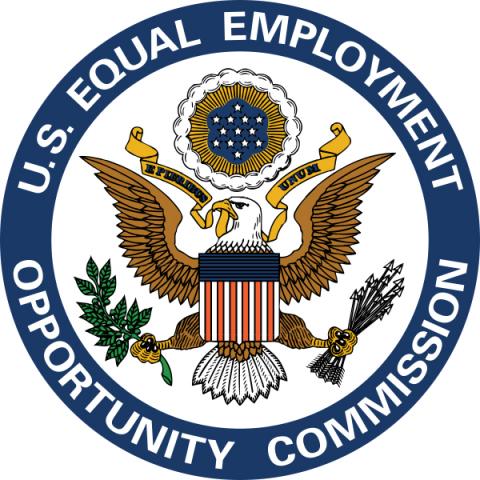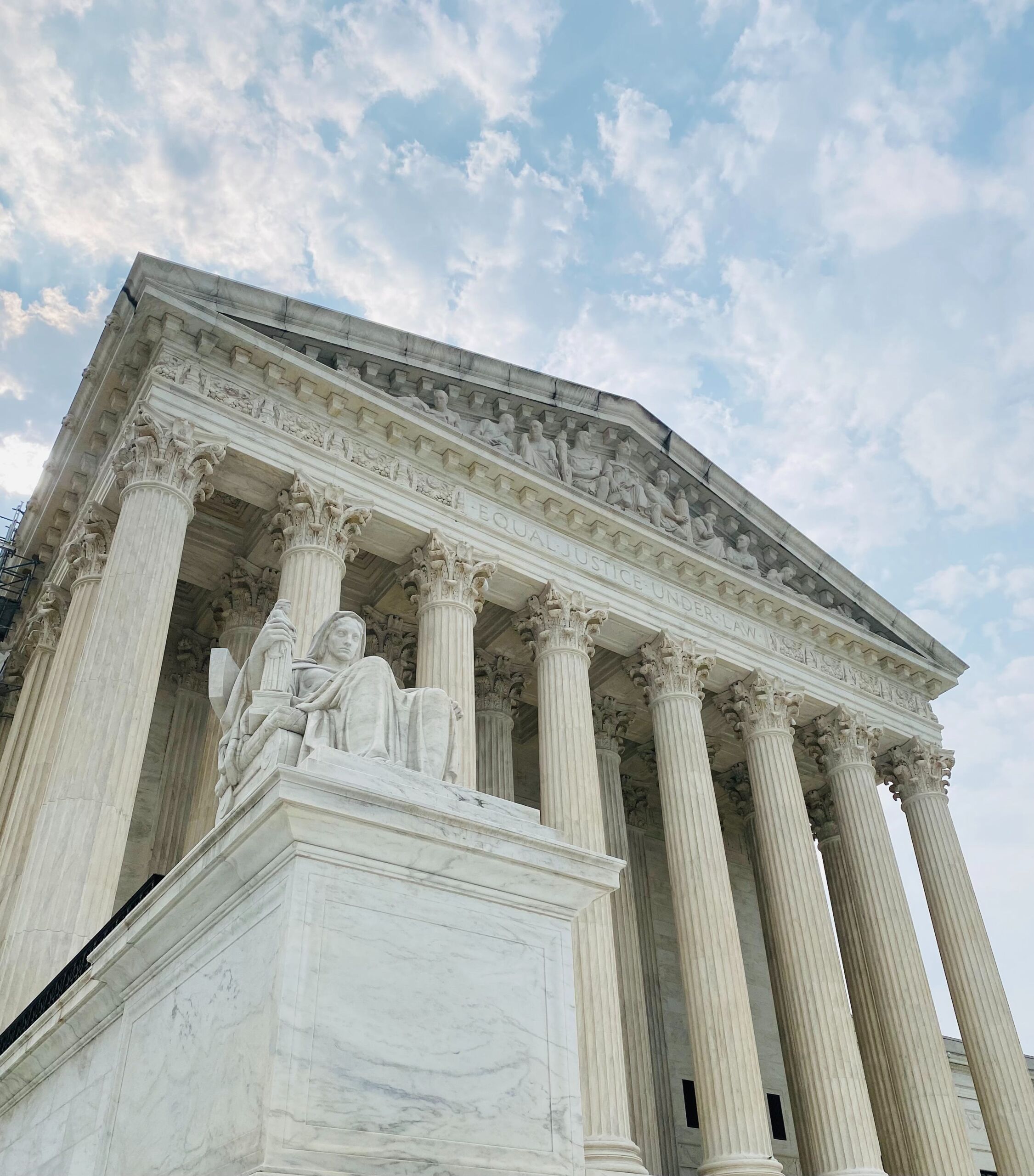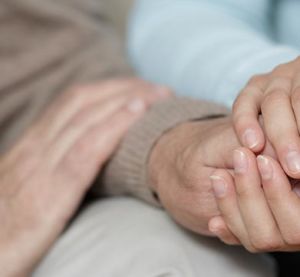 If you have grandchildren, you know that there’s never enough time or opportunities to see and spend time with them. A recent Washington Post column, “Grandparenting 101 for Baby Boomers,” makes it clear that today’s new grandparents are prepared to interact with their grandchildren more than previous generations of grandparents.
If you have grandchildren, you know that there’s never enough time or opportunities to see and spend time with them. A recent Washington Post column, “Grandparenting 101 for Baby Boomers,” makes it clear that today’s new grandparents are prepared to interact with their grandchildren more than previous generations of grandparents.
But what if your child suffered from a serious health condition that required you to take care of your grandchild because your child was unable to? Or how about a situation where you are the primary caregiver for your grandchild who suffers from a serious health condition? Would taking time off from work to care of your grandchild be covered by the Family and Medical Leave Act of 1993 (FMLA) in either of these two situations?
The answer is that it depends. First, either your child or grandchild would have to suffer from a serious health condition. What qualifies as a serious health condition can be found in our prior blog post, “What Qualifies As a ‘Serious Health Condition’ Under the FMLA?”
Second, it depends on the relationship between the grandparent and grandchild. The rest of this article will focus on this second point and explain different situations where the FMLA may provide protected leave for a grandparent to care for a grandchild.
The FMLA as Applied to Grandparents
On its face, the FMLA does not allow grandparents to take protected leave to take care of their grandchildren. The FMLA provides protected leave to “care for the spouse, or a son, daughter, or parent, of the employee…” who suffers from a serious health condition. Note that care for a grandchild is not specifically listed. However, there are three general situations where a grandparent will be able to receive FMLA leave to care for a grandchild.
Situations 1 and 2: In Loco Parentis and Guardianship
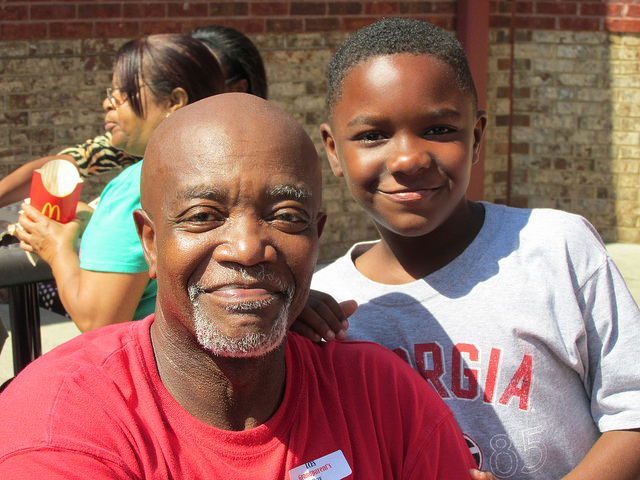 According to the FMLA, “son or daughter” includes a legal ward or the child or a person standing in loco parentis. A grandparent acts in loco parentis with respect to her or his grandchild if the grandparent has the responsibility of taking care of the child, either in day-to-day activities and/or in providing financial support.
According to the FMLA, “son or daughter” includes a legal ward or the child or a person standing in loco parentis. A grandparent acts in loco parentis with respect to her or his grandchild if the grandparent has the responsibility of taking care of the child, either in day-to-day activities and/or in providing financial support.
An individual who stands in loco parentis to a child is essentially acting as that child’s parent, even though he or she may not be biologically or legally. In deciding whether an individual acts in loco parentis, factors to consider include the following:
- the level of dependence the child has on the individual,
- the age of the child,
- the amount of support provided to the child by the individual, and
- the extent of parental duties exercised by the individual.
Assuming a grandparent is requesting FMLA leave to care for a grandchild, he or she should be prepared to provide confirmation to the employer of his or her in loco parentis or legal guardianship status.
Situation 3: Gienapp v. Harbor Crest
Remember how we just said that a grandparent cannot take FMLA leave to care for a grandchild? The Seventh Circuit Court of Appeals recently said there can be situations where that’s not true.
In Gienapp v. Harbor Crest, Suzan Gienapp was an employee of Harbor Crest. Gienapp had a daughter, Trish Hoff, who had several children of her own (Gienapp’s grandchildren). Hoff was diagnosed with cancer, and Gienapp was granted FMLA leave by Harbor Crest to care for Hoff while she received cancer treatment. But what actually happened is that Gienapp cared for Hoff in the form of taking care of Gienapp’s grandchildren (Hoff’s children).
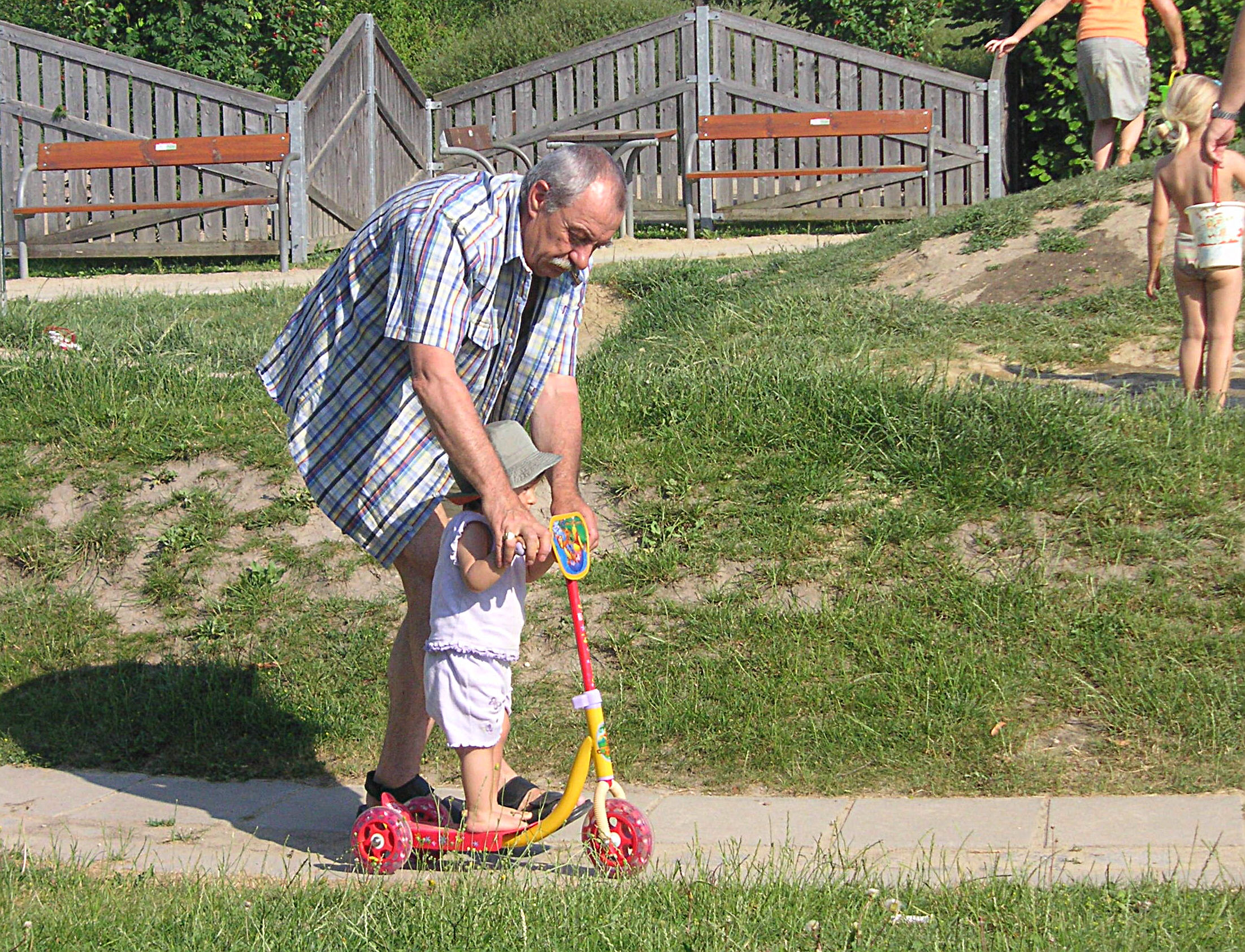 When Gienapp returned to work at the conclusion of her FMLA leave, she was fired. Harbor Crest argued that because Gienapp was taking care of her grandchildren and not her child (Hoff), Gienapp did not qualify for FMLA leave.
When Gienapp returned to work at the conclusion of her FMLA leave, she was fired. Harbor Crest argued that because Gienapp was taking care of her grandchildren and not her child (Hoff), Gienapp did not qualify for FMLA leave.
Gienapp sued Harbor Crest, asserting her FMLA rights were violated. Her case made its way to the Seventh Circuit Court of Appeals (the only higher court is the Supreme Court of the United States). The Seventh Circuit disagreed with Harbor Crest and stated that “care” for a child can include psychological assistance. Specifically, the Seventh Circuit stated, “A combination of assistance to one’s daughter, plus care of grandchildren that could take a load off the daughter’s mind and feet, counts as ‘care’ under the [FMLA].”
In Gienapp, practically all of the care Gienapp provided was for her grandchildren. By taking care of her grandchildren, Hoff could be at ease, knowing the grandchildren were well taken care of and her husband would be able to go to work.
Basically, the Seventh Circuit case has opened the door for a grandparent to receive FMLA leave to take care of grandchildren, as long as the grandparent can show the care for the grandchildren is also providing “care” to the grandparent’s own child (the grandchildren’s parent).
While technically only binding in the states of Illinois, Indiana, and Wisconsin (states under the jurisdiction of the Seventh Circuit), the Gienapp case can be very persuasive to other courts, especially lower federal courts making FMLA decisions.
Summing It Up
From a literal reading of the FMLA, grandparents cannot receive FMLA leave to care for a grandchild. However, there are three exceptions to this rule:
- the grandparent is the legal guardian of the grandchild,
- the grandparent stands in loco parentis to the grandchild, or
- the grandparent is caring for a child through psychological and emotional support by taking care of the child’s child, that is, the grandchild.
Factors to consider when deciding whether someone is considered as standing in loco parentis include the following:
- the level of dependence the child has on the individual,
- the age of the child,
- the amount of support provided to the child by the individual, and
- the extent of parental duties exercised by the individual.




